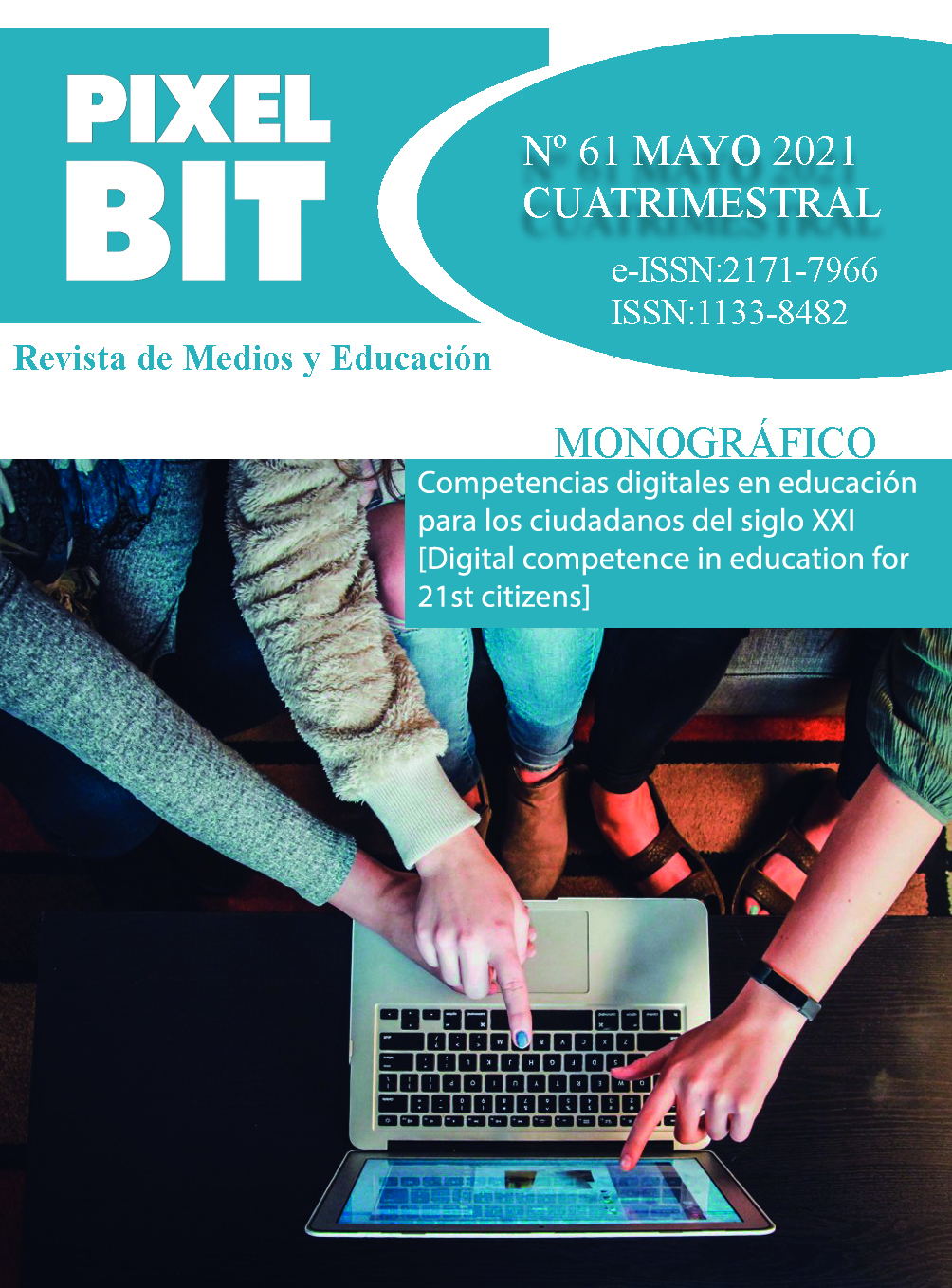Abstract
La transición a la enseñanza en línea impuesta durante la pandemia de Covid-19 ha acelerado la integración de las tecnologías de la información y la comunicación (TIC) por parte de los docentes en América Latina y el Caribe (ALC). Teniendo en cuenta que antes de la pandemia, la adopción de las TIC por parte estos docentes era lenta, es necesario investigar cómo, por qué y de qué manera los docentes de ALC superaron sus reticencias y resistencias previas a aprender y emplear la alfabetización digital. Este articulo se basa en un informe global realizado con entrevistas cualitativas sobre las experiencias de los docentes durante COVID -19 y analiza cómo la pandemia cambió la forma en que 53 docentes de 15 países de ALC piensan y utilizan las TIC. Los resultados sugieren que su preocupación por la pérdida en el proceso de aprendizaje de los estudiantes durante el cierre de las escuelas supera las barreras que normalmente impiden el uso de las TIC por parte de los profesores. Al mismo tiempo, la aceptación inicial del uso de las TIC ha variado debido, generalmente, a los continuos desafíos con la conectividad y el acceso a Internet. Esto hay que tenerlo en cuenta para conocer cuál es el apoyo necesario para el desarrollo profesional en el uso de las TIC después de COVID-19 y más allá.
References
Berger, J. (2020). The catalyst: How to change anyone's mind. Simon Schuster
Chen, L., Dorn, E., Sarakatsannis, J., & Wiesinger, A. (2021). Teacher survey: Learning loss is global and significant. Public & Social Sector Practice. McKinsey Global
Ertmer, P.A., & Ottenbreit-Leftwich, A. (2012). Removing obstacles to the pedagogical changes required by Jonassen’s vision of authentic technology-enabled learning. Computers & Education, 64(1), 175-182. http://dx.doi.org/10.1016/j.compedu.2012.10.008
Gillis, A., & Krull. L. (2020). COVID-19 remote learning transition in spring 2020: Class structures, student perceptions, and inequality in college courses. Teaching Sociology, 48(4), 283–299. https://doi.org/10.1177/0092055X20954263
Haynes-Brown, T. (2019). Exploring how beliefs shape use of technology among Jamaican secondary teachers. [Unpublished doctoral dissertation]. The University of the West Indies, Mona.
Hordatt Gentles, C., & Leask, M. (2021). Teacher experiences and practices during COVID-19. ICET MESHGuides Interim Global Report. https://bit.ly/3gBwX50
Jaramillo, S. (2020). COVID-19 and primary and secondary education: The impact of the crisis and public policy implications for Latin America and the Caribbean. United Nations Development Programme. https://bit.ly/3dLhJIt
King, K. (2020, April 21). Learning continues at this rural school, via motorbike! UNICEF Jamaica. https://uni.cf/3nfgtAL
Littlejohn, A., Beetham, H., & McGill, L. (2012). Learning at the digital frontier: a review of digital literacies in theory and practice. Journal of Computer Assisted Learning, 28(6). https://doi.org/10.1111/j.1365-2729.2011.00474.x
OECD [Organisation for Economic Co-operation and Development] (2020). Teachers’ use of new technology in Latin America. OECD Skills Studies. OECD Publishing. https://doi.org/10.1787/ce2b1a62-en
OECD (2019a). OECD Skills Outlook 2019: Thriving in a Digital World. OECD Publishing. https://doi.org/10.1787/df80bc12-en
OECD (2019b). TALIS 2018 Results (Volume I): Teachers and School Leaders as Lifelong Learners. OECD Publishing. https://doi.org/10.1787/1d0bc92a-en
Phipps, M. (2020, May 9). Community blackboards keep children learning. UNICEF Jamaica https://blogs.unicef.org/jamaica/community-blackboards-keep-children-learning/
Sokal, L., Trudel, L., & Babb, J. (2020). Canadian teachers’ attitudes toward change, efficacy, burnout during the COVID-19 pandemic. International Journal of Educational Research Open, 1. https://doi.org/10.1016/j.ijedro.2020.100016
Tai, K., & Kareem, O. (2018). The relationship between emotional intelligence of school principals in managing change and teacher attitudes towards change. International Journal of Leadership in Education, 22(4). 469-485. https://doi.org/10.1080/13603124.2018.1481535
Tilton, J., & Hartnett, M. (2016). What are the influences on teacher mobile technology self efficacy in secondary school classrooms? Journal of Open, Flexible and Distance Learning, 20(2). 79–93. https://bit.ly/2QujmBx
United Nations Educational, Scientific and Cultural Organization [UNESCO]. (2014). Regional
report about Education for All in Latin America and the Caribbean. Global Education For All Meeting. Muscat. https://bit.ly/3xfhg9r
UNESCO. (2018). ICT Competency Framework for Teachers Version 3. UNESCO https://unesdoc.unesco.org/ark:/48223/pf0000265721
UNESCO. (2020). Teachers: Leading in crisis, reimagining the future. UNESCO Global Teacher Campus: synthesis report. https://bit.ly/3u0z9a5
UNESCO. (2021, January 25). UNESCO figures show two thirds of an academic year lost on average worldwide due to Covid-19 school closures. UNESCO Press Release. https://bit.ly/3vgXYhW
Voogt, J., Fisser, P., Tondeur, J., & van Braak, J. (2016). Using theoretical perspectives in developing understanding of TPACK. In Handbook of Technological Pedagogical and Content Knowledge for Educators (2nd Ed.) (pp. 33 – 52). Routledge. http://dx.doi.org/10.4324/9781315771328

This work is licensed under a Creative Commons Attribution-NonCommercial-NoDerivatives 4.0 International License.
Copyright (c) 2021 Pixel-Bit. Media and Education Journal

